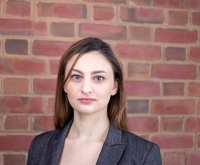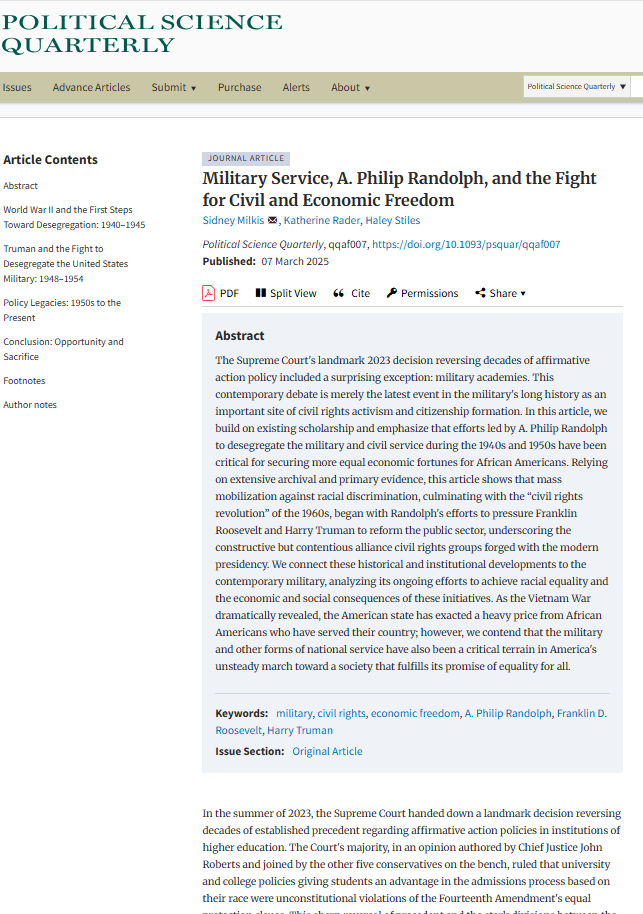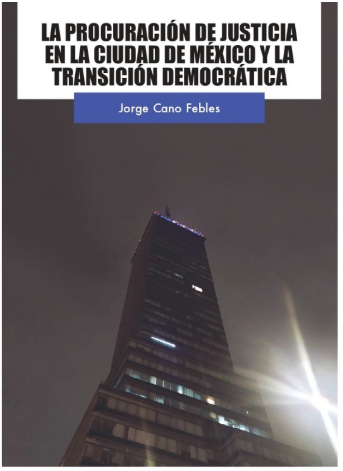Graduate Student Publications
Recent publications and acceptances
Stiles, Haley, Sidney Milkis, & Katherine Rader. 2025. "Military Service, A. Philip Randolph, and the Fight for Civil and Economic Freedom." Political Science Quarterly.

The Supreme Court's landmark 2023 decision reversing decades of affirmative action policy included a surprising exception: military academies. This contemporary debate is merely the latest event in the military's long history as an important site of civil rights activism and citizenship formation. In this article, we build on existing scholarship and emphasize that efforts led by A. Philip Randolph to desegregate the military and civil service during the 1940s and 1950s have been critical for securing more equal economic fortunes for African Americans. Relying on extensive archival and primary evidence, this article shows that mass mobilization against racial discrimination, culminating with the “civil rights revolution” of the 1960s, began with Randolph's efforts to pressure Franklin Roosevelt and Harry Truman to reform the public sector, underscoring the constructive but contentious alliance civil rights groups forged with the modern presidency. We connect these historical and institutional developments to the contemporary military, analyzing its ongoing efforts to achieve racial equality and the economic and social consequences of these initiatives. As the Vietnam War dramatically revealed, the American state has exacted a heavy price from African Americans who have served their country; however, we contend that the military and other forms of national service have also been a critical terrain in America's unsteady march toward a society that fulfills its promise of equality for all.
Robles, Filipe. 2024 “Radical Acts: Enslaved Practices of Care and Slavery Archives in 19th Century Brazil and the United States.” SPECTRA
In the face of the violence of slavery, enslaved people found ways of addressing and alleviating the suffering they and others faced by performing acts of care. This same regime of violence was often perpetuated via the erasure of enslaved people’s voices in formal archives of enslaved people and their descendants’ experiences.1 Saidiya Hartman developed the device of critical fabulation which uses fiction writing practices, imagination, and counterfactual speculations to challenge the absence of enslaved voices in historical archives.2 This article seeks to extend Hartman’s work by offering a new methodological device that I call “critical combination.” Critical combination employs the comparison of archival production and crossing of fragmentary archival evidence to expand Hartman’s method. In doing so, I demonstrate that enslaved practices of care created and maintained connections threatened by the structural violence of slavery, were conditioned by their geographies, and founded in a critical consciousness of oppression without which performing care would not be possible. By examining archives of slavery in the US and Brazil, I use critical combination to address the multifactual—what also happened— and uncover the multiple voices of enslaved people and their descendants to counter the erasures of enslaved perspectives. By using critical combination, this paper finds that archives silenced enslaved people’s experiences due to political and editorial decisions that determined which accounts were deemed “factual” representations of slavery. https://spectrajournal.org/articles/10.21061/spectra.v11i1.248
Odukoya, Tolu. 2024. "Keeping the Ex-Enemy Close but Not in My Backyard." Studies in Conflict & Terrorism.

How receptive are societies to the reintegration of deradicalized terrorists? Specifically in countries where the terrorists attacked the communities targeted for reintegration. I posit that closer proximity to terrorist violence is correlated with lower receptivity to reintegration in such scenarios. I examine the disposition of Nigerian citizens toward the Government’s deradicalization and reintegration program. I delineate three community categories: Core, Outer, and Peripheral based on their proximity to incidents of terrorist violence. Employing semi-structured interviews with 100 Nigerians across these communities, the empirical findings contradict my initial arguments. Surprisingly, the community closest to terrorist violence exhibited the highest receptivity to reintegration. Furthermore, community residents’ proximity to designated reintegration venues was negatively correlated with receptivity towards reintegration. https://www.tandfonline.com/doi/full/10.1080/1057610X.2024.2388336?src=exp-la
Tapia-Riquelme, D. 2024. "Irregular Migrants and the Demands of Relational Equality." Moral Philosophy and Politics.

Should states naturalize long-term irregular migrants residing in their territory? Scholars such as Carens and Rubio-Marín have defended their naturalization by drawing on a theory of social membership. However, some have argued that the social membership account falls short of requiring the granting of citizenship to irregular migrants. Others, such as Brock, Ochoa Espejo, and Hosein, have attempted to defend a right not to be deported. I argue that relational equality can provide a defense for granting irregular migrants citizenship rights – their complete naturalization – which avoids the limitations of both approaches: it provides a more solid grounding for granting citizenship to irregular migrants, and shows why a right to stay still leaves irregular migrants in a morally troubling position. Irregular migrants are subjected for long periods of time to the laws of the state they reside in without having any power or influence over them and face significant difficulties in leaving the country, which results in objectionable social inequality. I argue that such concerns about inequality of status override the right of the demos to determine its membership and concerns about irregular migrants’ original breaking of the law. https://doi.org/10.1515/mopp-2023-0121
Schumacher, Luke J. 2024. "Franklin D. Roosevelt, World War II, and the Reality of Constitutional Statesmanship." Texas National Security Review.

Is statesmanship compatible with constitutional government? Scholars have posited the possibility of “constitutional statesmanship” in America but have done little to probe its historical reality or to evaluate its consequences. To illustrate some of the limits, possibilities, and ambivalences of constitutional statesmanship in practice, this article examines Franklin Roosevelt’s leadership on the home front as the country contemplated and later waged war abroad. I argue that, while the president applied constitutional statesmanship to prepare his nation for war, this brand of circumscribed statesmanship later struggled to resolve the tensions between the demands of war and the dictates of constitutionalism. After explaining how distinct notions of constitutionalism generate unique expectations of statesmanship, I show how Roosevelt’s own conceptions of the U.S. Constitution and American statesmanship, developed before World War II, elucidate his leadership decisions during wartime. His leadership, for good or ill, indelibly shaped the powers of the U.S. president and the constitutional order we live under today. https://tnsr.org/2024/05/franklin-d-roosevelt-world-war-ii-and-the-reality-of-constitutional-statesmanship/
Sheely, Galen. 2024. "Moving the Electoral Goalposts: State and Local Strategies of Electoral Intervention in the U.S." Electoral Studies.
Central to the partisan divide in American politics is disagreement over the fundamental legitimacy of American elections. Due to the decentralized nature of election administration in the US, these disagreements have led to a complex web of heterogeneous electoral institutions. Scholars have made impressive progress on untangling the effects of these different institutions — unfortunately, less is known about the sources of adoption of such proposals. Using time-series cross-sectional data on the adoption of various electoral policies by state governments from 2001–2018, I examine the role of politics and identity in shaping the types of electoral interventions adopted by state legislatures during an important period of increasing politicization of such interventions. Applying dynamic panel models and constructing a novel measure of the concentration of Black population within competitive congressional districts, I find that the effects of race, competition, and ideology on electoral interventions differ across both partisan lines and issue areas. https://www.sciencedirect.com/science/article/pii/S0261379424000295?dgcid=author
Koreman, Sam. 2024. "Publicity's Misinformation Problem." Res Publica.

This paper argues that everyday practices crucial for ensuring politically engaged citizens such as sharing news articles or deliberating about potential laws can also be responsible for undermining the state’s efforts to publicize the law. Theorists view publicity—a requirement that laws should be public and accessible—as having crucial normative and practical importance in liberal democracy and, more broadly, in ensuring the rule of law. Due to egalitarian concerns, laws are often long, complex, and specific to ensure that street-level bureaucrats exercise low levels of discretion in applying the law. This—what I deem the institutional publicity problem—means that the law is so inaccessible that busy, everyday citizens must turn to third-party sources to understand policymaking. These intermediaries often make mistakes promulgating the law. Misinformation is hard to counteract, and pre-existing beliefs affect information acceptance. This all represents a behavioral publicity problem: morally and legally permissible actions can complicate and undermine reasonable efforts of citizens to learn about the law. I argue that the state is caught between a rock and a hard place. While there are benefits to having the state fight against misinformation, it also raises serious concerns about democratic engagement. https://doi.org/10.1007/s11158-024-09661-3
Scholten, Melle and David Leblang. 2023. "Land/Labor Ratios, Citizenship, and Migrants: Exploring the Hidden Links in the Political Economy of Immigration Regimes." World Politics.

Within sovereign states citizenship is arguably the most important political marker of in- and outsiders. As a result, questions about who gets to reap the benefits of citizenship often result in distributional conflict. This conflict becomes inflamed when a country goes through a period of significant inward migration. Given that citizenship is so important and so contentious, from where do the rules governing its acquisition come? Our starting point is the acknowledgment that migrants are mobile labor. From this perspective, countries in which elites benefit from an increased supply of productive labor—that is, those with high land/labor ratios—will be more likely to adopt policies that attract migrants, such as easier naturalization rules, including birthright citizenship. We illustrate the plausibility of our argument with some statistical evidence and suggest some avenues to further explore this crucial question. https://muse.jhu.edu/pub/1/article/915397/pdf
Bibeau, Alexis, Evelyne Brie, Yannick Dufresne, and Gilles Gagné. 2023. "Religiosity MAtters: Assessing Competing Explanations of Support for Secularism in Quebec and Canada." Politics and Religion.

Secularism—i.e., the separation between the state and religious institutions—is a fundamental characteristic of liberal democracies, yet support for secular arrangements varies significantly across Western countries. In Canada, such attitudinal divergences are observable at the regional level, with citizens from Quebec displaying higher levels of support for secularism than other Canadians. In this paper, we test three hypotheses to account for this regional discrepancy: religiosity, liberal values, and out-group prejudice. Using data from an online panel survey (n = 2,000), our findings suggest that support for secularism in Quebec is mostly explained by the province's lower baseline levels of religiosity, anticlerical feelings, and by its distinctive understanding of liberalism. These factors are likely to result from Quebec's unique religious and sociohistorical history. Results also suggest that while negative feelings toward religious minorities are positively correlated with support for secularism across the entire country, negative feelings toward ethnic minorities are associated with lower support for secularism in Quebec. These findings disprove the commonly held assumption according to which support for secularism is driven by ethnic prejudice in Quebec. https://www.cambridge.org/core/journals/politics-and-religion/article/religiosity-matters-assessing-competing-explanations-of-support-for-secularism-in-quebec-and-canada/2230C7A516F31DBC2BBDCA01F0CF13AA?utm_source=hootsuite&utm_medium=twitter&utm_campaign=RAP_Sep23
Magula, Justin. 2023. "Exploring factors and implications of violence against civilians: a case study of the Soviet-Afghan war." Small Wars & Insurgencies.

The Soviet-Afghan War serves as a significant case study to understand why states resort to violent acts against civilians during war. This study takes a multidimensional approach, examining strategic, operational, and individual factors and applying theories of violence and mass killing. By analyzing the conditions that led the Soviets to target civilians, this investigation identifies a nexus of interconnected factors. At the strategic level, Soviet leaders pursued a swift victory to establish a Communist client regime while minimizing casualties and controlling information flow. Operationally, the ill-preparedness of the Red Army for counterinsurgency warfare, coupled with an entrenched organizational culture, led to the adoption of counterproductive enemy-centric tactics against Afghan noncombatants. Additionally, inadequate training, prolonged deployments, and a lack of disciplinary measures at the individual level contributed to the perpetration of violent acts. Understanding the underlying causes of violence against civilians, particularly in the context of Russian forces, holds practical importance. This knowledge can assist policymakers in devising strategies that mitigate wartime violence and enhance the protection of citizens. Drawing parallels to contemporary conflicts involving Russia, the study concludes by recommending future research directions and emphasizing the relevance of comprehending the targeting of noncombatants in ongoing conflicts, notably the Russian-Ukrainian conflict. https://www.tandfonline.com/doi/full/10.1080/09592318.2023.2231198
Lollis, Jacob and Mackenzie Dobson. 2023. "I’m Coming Out! How Voter Discrimination Produces Effective LGBTQ Lawmakers." Center for Effective Lawmaking

In this Center for Effective Lawmaking (CEL) working paper, the University of Virginia’s Jacob Lollis and Mackenzie Dobson (CEL Graduate Affiliate) look into the effectiveness of LGBTQ lawmakers. The authors expand on earlier research that connects voter discrimination to effective lawmaking and argue that the prejudice that LGBTQ legislators face from voters enables them to be effective lawmakers. To test this, Lollis and Dobson take data on state legislators’ sexual identity and compare it to data on state legislative effectiveness scores (based on research from the CEL). Their research finds that LGBTQ lawmakers are 28% more effective than non-LGBTQ lawmakers. In addition, they use their original measurement which indicates the year the LGBTQ lawmakers publicly came out; they find that such lawmakers who have shared their identity with voters are 43% more effective than LGBTQ lawmakers that have not come out publicly. https://thelawmakers.org/legislative-research/im-coming-out-how-voter-discrimination-produces-effective-lgbtq-lawmakers.
Pruit, Jean-Marc. 2023. "Black Atlantic Republicans and the Limits of the Plantation." Journal of Haitian Studies

This article engages with two bodies of literature—the interdisciplinary studies of the Haitian Revolution and republican political theory—to make two corresponding interventions. First, I show how, despite republican political philosophy’s exclusion of the slave from the practice of freedom, Haitian revolutionaries and radical abolitionists—whom I call Black Atlantic Republicans— challenged this exclusion using republican logic. To make this point, I engage with shared understandings of tyranny and domination in David Walker’s Appeal and Toussaint Louverture’s personal correspondence. Second, using Jean Casimir’s notion of the counterplantation system and Louverture’s proclamations on labor, I argue that despite the Black Atlantic universalization of republican freedom, the ideology fails to properly theorize the domination inherent to plantation labor. This inability to theorize labor freedom, I claim, is endemic to republican political thought itself. We can arrive at this insight by centering the revolutionary Haitian masses rather than their leadership. https://doi.org/10.1353/jhs.2022.0005





